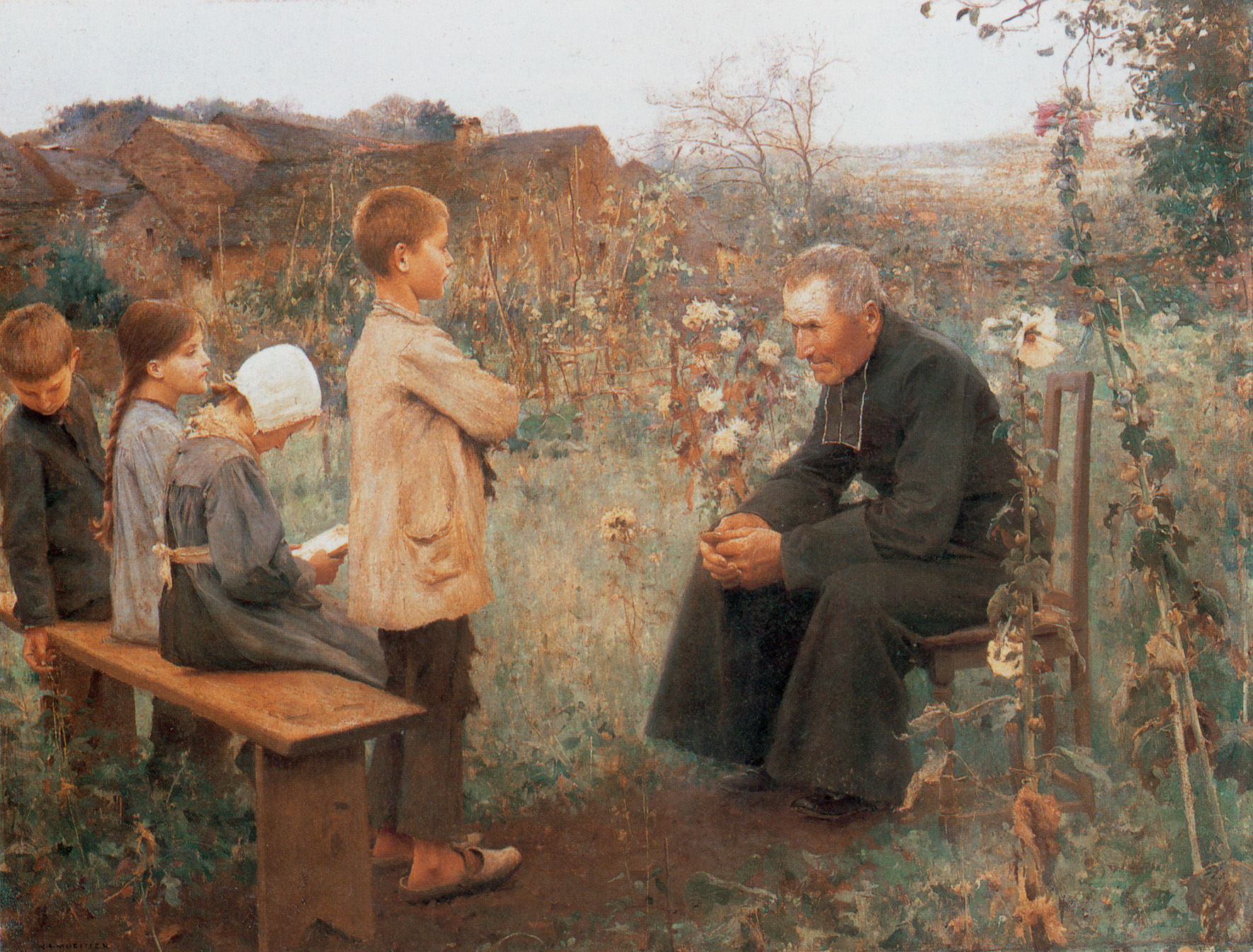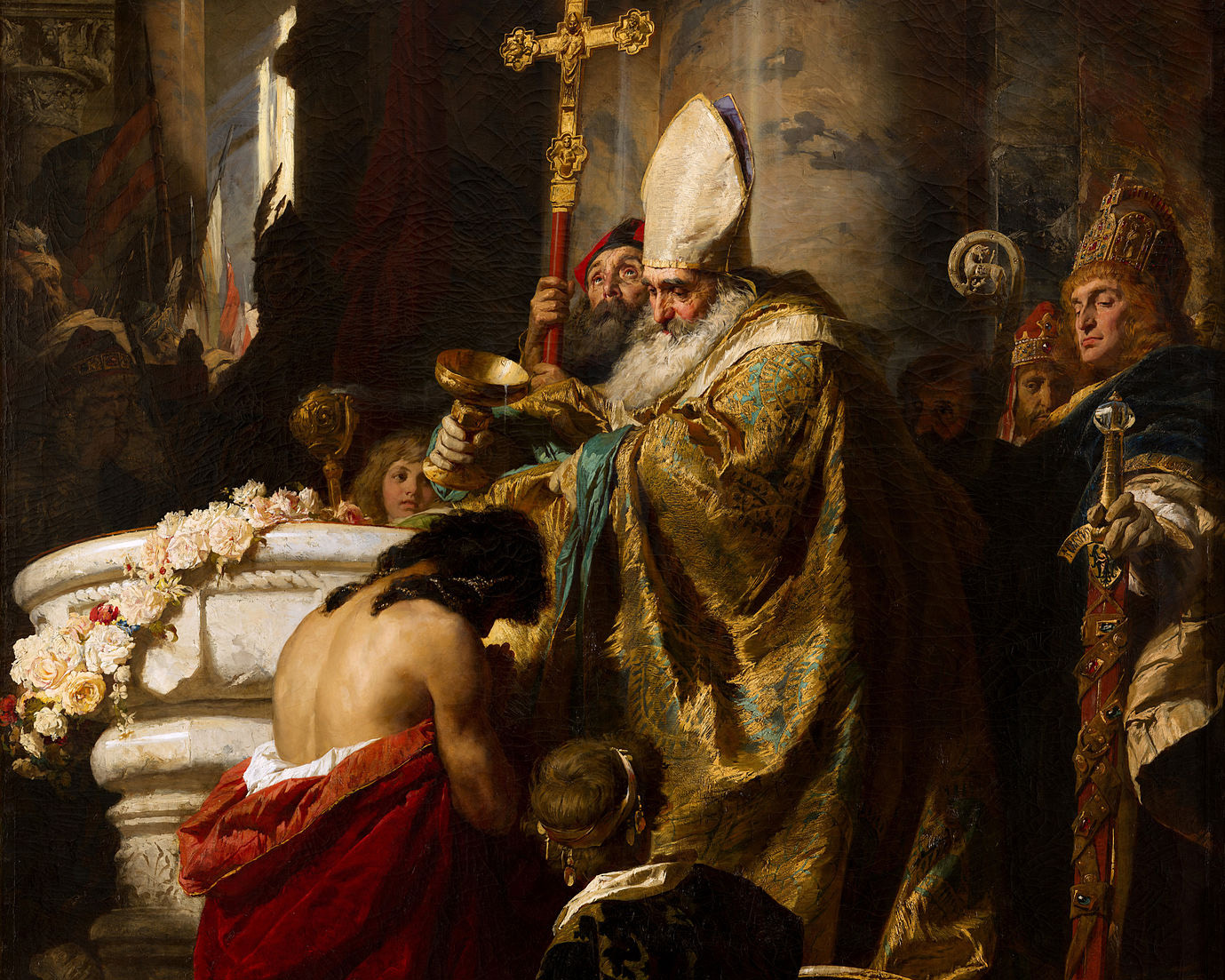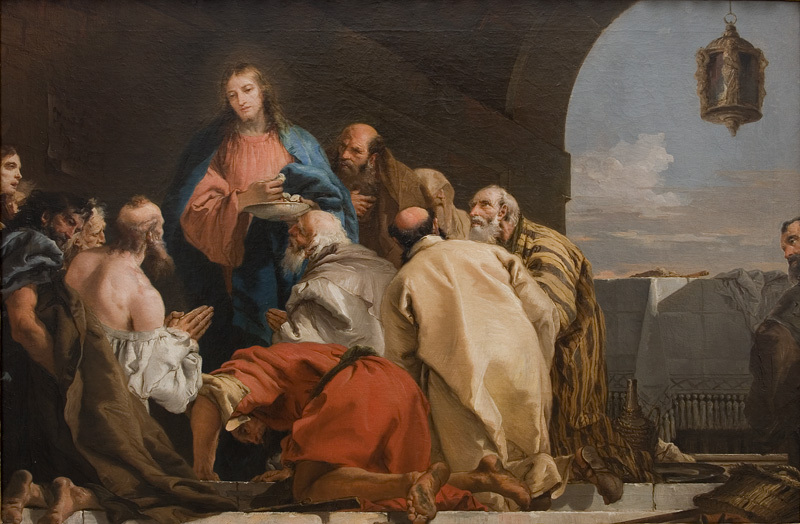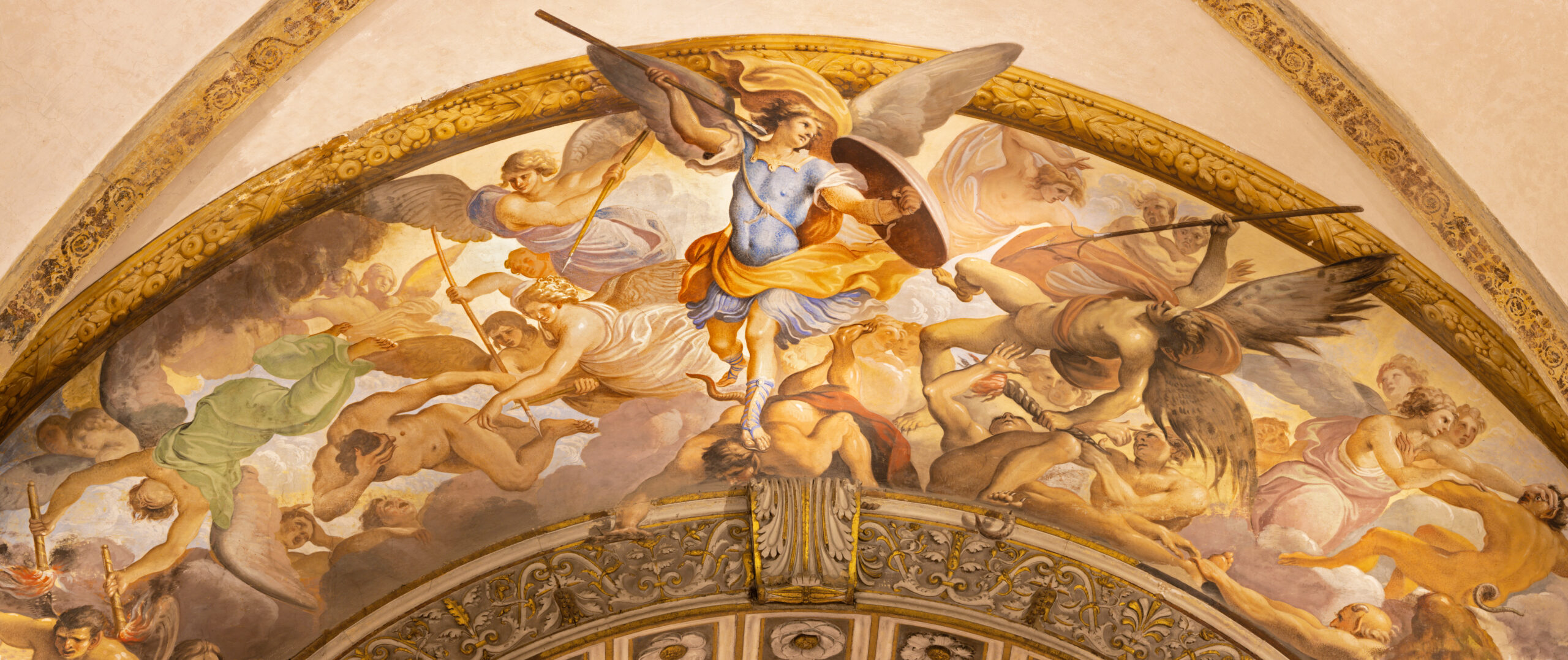Baptism
How silly we humans can be.
Have you gone to great lengths to celebrate your child’s birthday? Have you put time and energy into buying and wrapping the perfect gift? Have you bought the ingredients and baked an elaborate cake? Have you inflated the balloons and hung the streamers, invited family and friends, and hosted a magnificently themed party—Star Wars . . . Dinosaurs . . . Dora the Explorer . . . Unicorns.
Silly? No. Not particularly. You love your little one. And that is a beautiful thing. But I ask you this: do you even know your child’s baptismal date? You go to great lengths to celebrate the day your child left the womb, yet you do not know the date your child became a temple of the Holy Spirit. You spend hours every single year celebrating a physical birth, but never a spiritual birth?
Silly? Yes. Celebrating the flesh without celebrating the spirit is silly, to say the least.
And what lesson does this convey to your little one? What if you, Dear Parent, threw a modest birthday party, with modest gifts, but treated her baptism day with splendor and rejoicing? What if you said with a big smile, “This day, my child, you became a beloved son or daughter of God through the waters of Holy Baptism. This is your true birthday: for you were born in the Spirit, bound for eternity in heaven.”
If you fail to celebrate the most glorious day in your child’s life, the day of baptism, you are not alone. But upon consideration, perhaps you feel foolish for celebrating the flesh more than the spirit.
Seeing the soul as the realist of realities is a continual earthly struggle, for our eyes are often affixed on the things below. It is understandable. It is, we pray, forgivable. But you, as a parent of a little soul, are called to something far greater than what worldly parents offer their children. You are called to look at your son or daughter and to see both body and soul, while giving greater importance to the latter.
Celebrate the soul. Celebrate the soul’s great cleanse. Celebrate the day that the Lord adopted your child as His own. Celebrate the day your child became bound for heaven.
The Blessings of Confession
TAN’s great little booklet entitled Confession: Its Fruitful Practice begins with a passage I could never replicate. It is worthy of citing in full. As you read it, consider the blessings available to your little one—and if you really desire anything greater for him in this life:
“Blessed are they that wash their robes in the Blood of the Lamb.” (Rev. 22:14). Catholics truly may be called “blessed” in the means they have of washing the sin-stained robes of their souls in the Precious Blood of the Lamb of God in the Sacrament of Penance!
Man can hope for no greater blessing on this earth than true peace of soul. The Sacrament of Penance is a perennial fountain of peace. It is a source of untold consolation to human hearts.
This Sacrament gives any and every member of the Catholic Church who has transgressed the holy laws of God an easy and simple means to obtain full pardon and to be restored to His friendship. This is its first and principle effect. Its second effect is to wipe out the punishment due to sin: eternal punishment entirely, and temporal punishment in whole or in part, according to the penitent’s disposition.
It closes the gates of Hell, which open to swallow up in the infernal abyss souls who deliberately turn away from God by mortal sin and who sunder the ties binding them to Him by preferring their own wills to His. A good Confession opens anew the portals of Heaven, which are barred to souls so long as they remain in the state of mortal sin.
It clothes souls with the beautiful nuptial garment of Sanctifying Grace, or renders that garment still more beautiful if the soul already possesses it.
It restores past merits, which are lost by a single mortal sin.
It renders the soul capable again of performing acts meritorious of an eternal reward, which is impossible while it is in the state of mortal sin.
It confers sacramental graces, that is, powerful supernatural helps to avoid sin in the future, and to persevere in the service of God.[1]
Such a description of the blessings of this sacrament should excite any parent to the point of making confession a frequent occurrence for their family.
It is beyond certain that your child will face temptation in this life. It is near certain that your son or daughter will fall in big ways or small. But what is equally certain is that God awaits your repentant child in the confessional, just as the loving father in Christ’s parable awaited his prodigal son.
The Habit of Frequent Confession
While I have no doubt in the Real Presence of the Holy Eucharist and am thus thrilled to see my young adult children in Adoration, I am overwhelmed with joy when I see them in line for confession. I do not speculate as to their sins; my only concern is their repentance.
Of all the habits you can form in your child’s life—nutrition, fitness, hard work, good manners—the habit of frequent confession is perhaps the single most important of all. In fact, frequent and contrite confession must come before frequent Communion. Our Lord weeps, as does Our Lady, at the vast amounts of unworthy communicants. It is a sacrilege to receive the True Presence into your flesh when a sin of grave matter is upon your soul. Thus, training your little one in frequent confession increases the likelihood of a worthy Eucharistic reception.
Your weekly family schedule fills up quickly. Every Monday and Wednesday is soccer practice; every Thursday is mom’s night out; every Saturday is date night. But where is confession? Imagine if your family rotated its week around becoming heaven bound.
When you, Dear Parent, are nothing but rotting flesh and decaying bones, will your fifty-year-old daughter still be driving to soccer practice? But will she have the chance to drive herself and, pray God, her own children to confession? Yes. So long as your child is living in the civilized world, she will have this glorious option. Form the habit in your little one now.
The Adult Child’s Return to the Sacraments
And here is a difficult reality for many parents to swallow—and I say it with sympathy and charity: the greatest sorrow you should feel as a parent is not whether your grown child is unemployed or divorced or even deathly ill. Rather, it is when your grown child freely chooses to abandon the sacrament of confession.
How many faithful parents experience the absolute heartache of their adult children leaving the Church—usually after they send them to a secular university? And that loving parent repeatedly invites his son or daughter to Holy Mass, desperately wanting the child to come back into the fold.
But on a certain level, this is a mistake.
One of the reasons the grown child no longer desires Holy Communion is because he stopped going to confession. And to admit someone to Holy Communion without proper contrition and reception of absolution is a sacrilege. From the vantage point of the adult child, it is also a cheapening of the Eucharist into something he can get whenever he chooses rather understanding Holy Communion as a privilege he no longer deserves. If he can just—on a whim—come back to Communion, there is nothing special about it.
No! The loving parent who wants his child to return to Holy Mass must tell him frankly, “Yes, please come to Mass with the family. Sit with us. Pray with us. You are not only welcome but greatly desired. But, my son or daughter, you must go to confession before receiving Holy Communion. I will move heaven and earth to help you with this. But if you have been away for longer than a year, or if you have any grave matter on your soul, the worst thing you can do is receive Holy Communion. I love both Our Lord and you too much to encourage you in any other way.” This, Dear Parent, is the truth. But anything else is both a sacrilege and a cheapening of the Sacrament in the eyes of your beloved child. Explaining the necessity for confession is the surest way for your child, young or old, to regain appreciation for the Holy Eucharist.
Satan and the Sacrament of Confession
In the jarring little book Triumph of the Blessed Sacrament over Beelzebub, the prolific TAN author Fr. Michael Mueller recounts the incredible story of a young French lady named Nicola Aubry who was possessed by demons in 1563. Her exorcism lasted several months. In those days, the priest would often perform the Rite of Exorcism in the public Church. Many witnesses confirmed the remarkable events of this exorcism and many incredible stories are available to anyone who desires to see the Holy Eucharist’s triumph over the devil. One such story shows the power of confession over the devil himself:
One day, during one of the exorcisms in church, the evil spirit was chattering and uttering all kinds of nonsense. Suddenly he stopped short and gazed fixedly at a young man who was eagerly forcing his way through the crowd, in order to have a nearer view of the possessed woman. The devil saluted him in a mocking tone. “Good-morning, Peter!” said he, calling also by his family name. “Come here and take a good view of me. Ah, Peter! I know that you are a freethinker, but tell me where were you last night?” And then the devil related, in the presence of everyone in church, a shameful sin that Peter had committed the preceding night. He described all the circumstances with such precision, that Peter was overwhelmed with confusion, and could not utter a word. “Yes,” cried the devil, in a mocking tone, “you have done it; you dare not deny it.”
Peter hurried away as fast as he could, muttering to himself, “The devil tells the truth this time; I thought that no one knew it but myself, and God.”
Peter seemed to have forgotten that the devil is the witness of our evil actions, that he remembers them all well, and that, at the hour of death, he will bring them all against us, as he himself declared.
“For it is thus,” he added in a rage, “that I take revenge on sinners.” Peter had not been to Confession for many years, and, as a natural consequence, his morals were not exactly of the purest order. He had been guilty of what the fashionable world calls “pardonable weaknesses,” “slight indiscretions,” etc. The public accusation of the devil filled him with wholesome confusion. He rushed into the confessional, cast himself at the feet of a priest, and received absolution. After having finished his Confession, Peter had the boldness to press through the crowd once more; but this time he kept at a respectful distance from his infernal accuser. The exorcist saw Peter, and knowing that he had been at Confession, he told him to draw near. Then pointing to him, the exorcist said to the devil, “See here, do you know this man?”
The devil raised his eyes and leisurely surveyed Peter from head to foot, and from right to left. At last he said, “Why! really, it is Peter.”
“Well!” said the exorcist, “do you know anything else about him?”
“No,” answered the devil, “nothing else.”
The devil had no longer any knowledge of Peter’s sins, because they had been entirely blotted out by the Blood of Jesus Christ, in the holy Sacrament of Confession. What the priest forgives on earth, God forgives in Heaven.
As a Parent, you must teach your child that the devil is alive and prowling about the world, seeking the ruin of souls (1 Pt 5:8). But nothing destroys the devil’s knowledge over his prey more than the power of absolution. The devil has no power against the blood of Jesus Christ, which washes away our sins.
Source: Parenting for Eternity by Conor Gallagher, Published by TAN Books (cf. The Virtue of Piety, pp. 44-54).

[1] Confession: Its Fruitful Practice with an Examination of Conscience (Charlotte: TAN Books, 2000), pp. 1–2.








